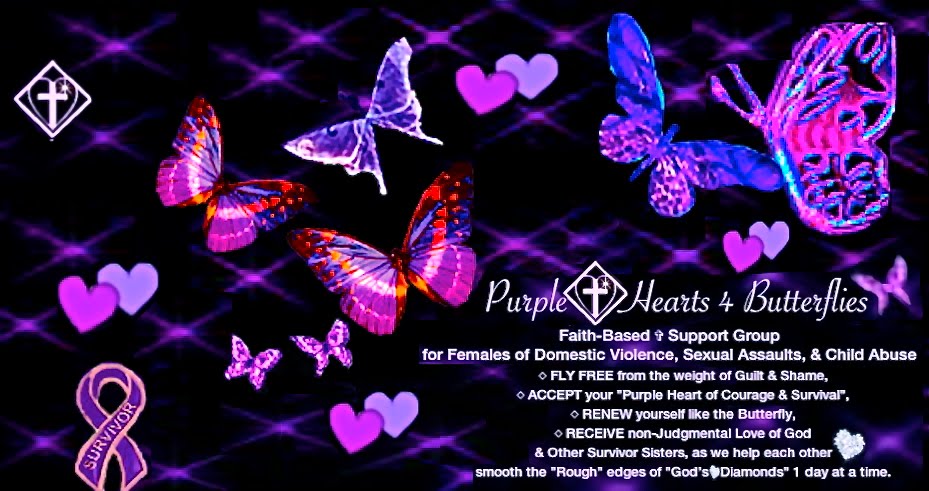Warning Signs and Impact of Domestic Violence
How do you know if you're being abused? Definition and warning signs of domestic violence plus mental health effects of domestic violence.What Is Domestic Violence?
Domestic violence is control by one partner over another in a dating, marital or live-in relationship. The means of control include physical, sexual, emotional and economic abuse, threats and isolation.Survivors face many obstacles in trying to end the abuse in their lives although most are able to…psychological and economic entrapment, physical isolation and lack of social support, religious and cultural values, fear of social judgment, threats and intimidation over custody or separation, immigration status or disabilities and lack of viable alternatives. Increased public, legal and healthcare awareness and improved community resources enable survivors to rebuild their lives.Who Is Affected by Domestic Violence?
Domestic violence occurs in every culture, country and age group. It affects people from all socioeconomic, educational and religious backgrounds and takes place in same sex as well as heterosexual relationships. Women with fewer resources or greater perceived vulnerability—girls and those experiencing physical orpsychiatric disabilities or living below the poverty line—are at even greater risk for domestic violence and lifetime abuse. Children are also affected by domestic violence, even if they do not witness it directly.
How Do You Know if You Are Being Abused?Abusers use many ways to isolate, intimidate and control their partners. It starts insidiously and may be difficult to recognize. Early on, your partner may seem attentive, generous and protective in ways that later turn out to be frightening and controlling. Initially the abuse is isolated incidents for which your partner expresses remorse and promises never to do again or rationalizes as being due to stress or caused by something you did or didn’t do.EARLY WARNING SIGNS OF ABUSE:
- Quick whirlwind romance
- Wanting to be with you all the time; tracking what you’re doing and who you’re with
- Jealousy at any perceived attention to or from others
- Attempts to isolate you in the guise of loving behavior (You don’t need to work or go to school; we only need each other, criticizing friends/family for not caring about you)
- Hypersensitivity to perceived slights
- Quick to blame others for the abuse
- Pressures you into doing things you aren’t comfortable with (If you really love me, you’ll do this for me)
QUESTIONS TO ASK YOURSELF:
- Are you ever afraid of your partner?
- Has your partner ever actually hurt or threatened to hurt you physically or someone you care about?
- Does your partner ever force you to engage in sexual activities that make you uncomfortable?
- Do you constantly worry about your partner's moods and change your behavior to deal with them?
- Does your partner try to control where you go, what you do and who you see?
- Does your partner constantly accuse you of having affairs?
- Have you stopped seeing family or friends to avoid your partner's jealousy or anger?
- Does your partner control your finances?
- Does he/she threaten to kill him/herself if you leave?
- Does your partner claim his/her temper is out of control due to alcohol, drugs or because he/she had an abusive childhood?
If you answer yes to some or all of these questions, you could be suffering abuse. Remember you are not to blame and you need not face domestic violence alone.How Common Is Domestic Violence?
According to a National Violence Against Women Survey, 22 percent of women are physically assaulted by a partner or date during their lifetime and nearly 5.3 million partner victimizations occur each year among U.S. women ages 18 and older, resulting in two million injuries and 1,300 deaths.
- Nearly 25 percent of women have been raped and/or physically assaulted by an intimate partner during their lives.
- 15.4 percent of gay men, 11.4 percent of lesbians and 7.7 percent of heterosexual men, are assaulted by a date or intimate partner during their lives.
- More than 1 million women and 371,000 men are stalked by partners each year.
What Are the Mental Health Effects of Domestic Violence?
MENTAL HEALTH EFFECTDomestic violence can lead to other common emotional traumas such as depression, anxiety, panic attacks, substance abuse and posttraumatic stress disorder. Abuse can trigger suicide attempts, psychotic episodes, homelessness and slow recovery from mental illness. Children exposed to domestic violence are at risk for developmental problems, psychiatric disorders, school difficulties, aggressive behavior, and low self-esteem. These factors can make it difficult for survivors to mobilize resources. Nonetheless, many domestic violence survivors do not need mental health treatment and many symptoms resolve once they and their children are safe and have support. For others, treatment is in their plan for safety and recovery.What You Can Do if You Are Being Abused
While you cannot stop your partner’s abuse—only he or she can do that—you can find help and support for yourself.
- Talk with someone you trust: a friend or relative, a neighbor, coworker or religious or spiritual advisor. Tell your physician, nurse, psychiatrist or therapist about the abuse.
- Call the National Domestic Violence Hotline [1-800-799-SAFE (7233)], your state domestic violence coalition, and/or a local domestic violence agency.
- Call the police if you are in danger.
- Remember, you know your situation better than anyone else. Don’t let someone talk you into doing something that isn’t right for you.
- For more information, please contact:
American Psychiatric Association (APA)National Coalition Against Domestic Violence
1000 Wilson Blvd., Suite 1825
Arlington, VA 22209
703-907-7300
www.HealthyMinds.org
303-839-1852
www.ncadv.orgNational Resource Center on Domestic Violence
800-537-2238
www.nrcdv.org
via healthyplace.com

No comments:
Post a Comment
Do you have a question, comment or would like to share something from your heart that pertains to post? Please share, I will moderate it so if you don't want it published just say so.(remember we help others by sharing our experiences)